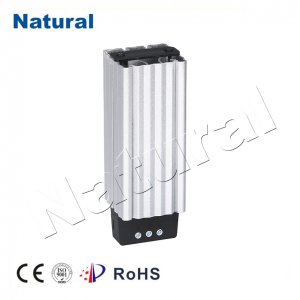Heaters are a ubiquitous part of our lives, providing warmth and comfort in our homes, offices, and industrial settings. As technology continues to advance, the heating industry has not remained stagnant. Heater manufacturers have been at the forefront of innovation, striving to create more efficient and sustainable heating solutions. In this article, we will explore some of the key innovations in heater manufacturing that are shaping the industry today.

Smart Heating Systems: One of the most significant developments in heater manufacturing is the integration of smart technology. Smart heaters can be controlled remotely through smartphones or voice-activated devices, allowing users to adjust settings and monitor energy consumption with ease. These systems can also learn user preferences and adapt heating patterns accordingly, optimizing energy usage and reducing costs. Energy-Efficient Materials: Heater manufacturers are increasingly using energy-efficient materials in their products. Advanced insulation materials and heat exchangers help heaters retain heat more effectively, reducing energy wastage. Additionally, the use of materials with a lower environmental impact, such as recyclable and non-toxic components, is becoming more prevalent. Renewable Energy Integration: With the global shift towards renewable energy sources, heater manufacturers are aligning their products with this trend. Solar and geothermal heaters are gaining popularity, harnessing the power of the sun or the Earth’s natural heat to provide sustainable heating solutions. These systems reduce carbon footprints and energy bills simultaneously. Hybrid Heating Systems: Hybrid heating systems combine traditional heating methods, like gas or electric heaters, with alternative energy sources, such as heat pumps. This approach ensures consistent heating even in extreme weather conditions while still benefiting from the efficiency of renewable energy sources when possible. Improved Heating Controls: Advanced heating controls and thermostats have emerged as essential components of modern heaters. These controls offer precise temperature regulation, zone heating options, and scheduling features, allowing users to customize their heating needs while conserving energy. IoT Integration: The Internet of Things (IoT) has enabled heater manufacturers to create interconnected heating systems. IoT sensors can detect occupancy in a room and adjust heating levels accordingly. Moreover, these sensors provide real-time data on energy consumption, enabling users to make informed decisions about their heating habits. Low-Emission Heaters: Addressing environmental concerns, manufacturers are developing heaters with lower emissions of greenhouse gases and pollutants. This reduces the impact on air quality and contributes to a cleaner and healthier environment. Longevity and Durability: Heater manufacturers are focusing on creating durable and long-lasting products. Investing in heaters with extended lifespans reduces the need for frequent replacements, ultimately decreasing waste and resource consumption. Remote Diagnostics and Maintenance: Remote diagnostics and predictive maintenance are becoming more prevalent. Heater systems can alert users or technicians to potential issues before they become major problems, improving system reliability and reducing downtime. Consumer Education: Manufacturers are increasingly engaged in educating consumers about energy-efficient heating practices. They provide resources and guidance on how to use heaters effectively, minimizing energy waste and maximizing comfort. In conclusion, the heater manufacturing industry is evolving rapidly to meet the growing demand for energy-efficient and sustainable heating solutions. These innovations not only benefit consumers by reducing energy costs but also contribute to a more environmentally friendly future. As technology continues to advance, we can expect even more groundbreaking developments in the field of heater manufacturing, making our lives more comfortable and eco-friendly.